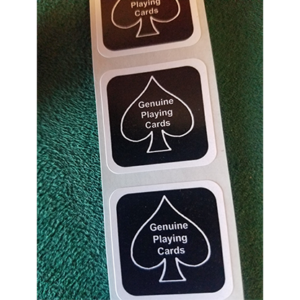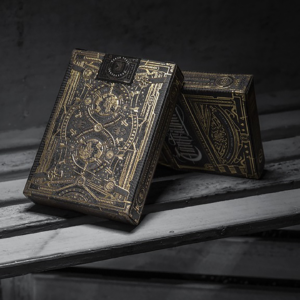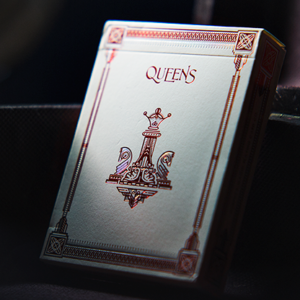Description
It seems to be commonly believed that the genre of card magic known as packet tricks – that is, card tricks that use a small number of cards rather than the entire deck – are a relatively recent invention in the history of conjuring but this is not the case. While it’s true that packet tricks became insanely popular in the magic community of the 1960s and 70s (Jon Racherbaumer even coined the word « packeteer » to describe magicians who specialized in these types of tricks), effects with a small number of cards date back to the late 1800s. Though many use the term « packet trick » disparagingly, the truth is that, if well-conceived and performed, they can often be more astounding than effects performed with an entire deck of cards. Don’t underestimate the power of the packet! Armed with just a small bunch of cards and the wisdom gleaned from the masters on this DVD, you’ll be a « packeteer » in no time!
On Volume 3, you’ll meet a number of magicians performing and explaining small-packet card magic that any close-up performer would be proud to add to their repertoire. Bill Malone starts off with a super-powered version of Paul Harris’ Reset as the Aces and Kings keep changing places in startling and visual ways. Paul Wilson continues with an in-the-hands version of Nick Trost’s classic effect where the spectator selects a card and it’s found to be the only one with a differently-colored back. Then, Pavel introduces his audience to a card-eating turtle that visibly « eats » four freely-selected cards while John Guastaferro shows off four cards with pictures of frogs that turn face down one at a time and then into four princes before finally turning back into frogs once more. Michael Ammar uses just a few cards from an ordinary deck to spin the tale of Brother John Hamman’s Twins while Dan Fleshman presents a short and sweet interlude where the four Aces turn into all Aces of Spades and then instantly change into the four Kings. James Swain then performs his modern-day classic where four face-up Queens are each shown to have a different back color and design than the other three, whose backs are alike. As a finale, all of the Queens are shown to have different backs. Michael Ammar then closes out the volume with Dai Vernon’s classic effect where the four Aces each turn over one at a time as if by magic.





